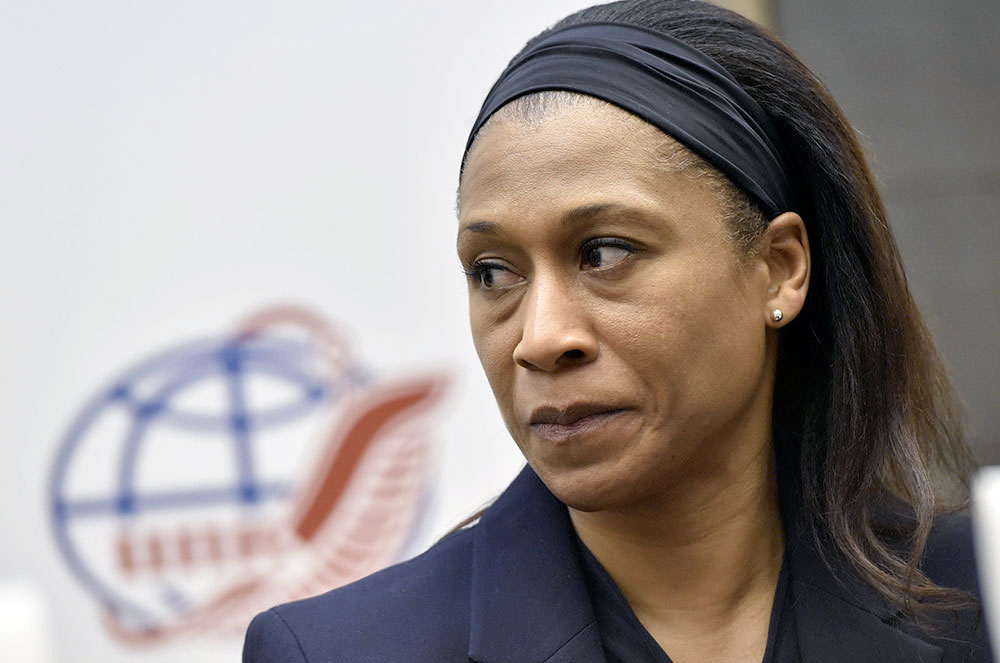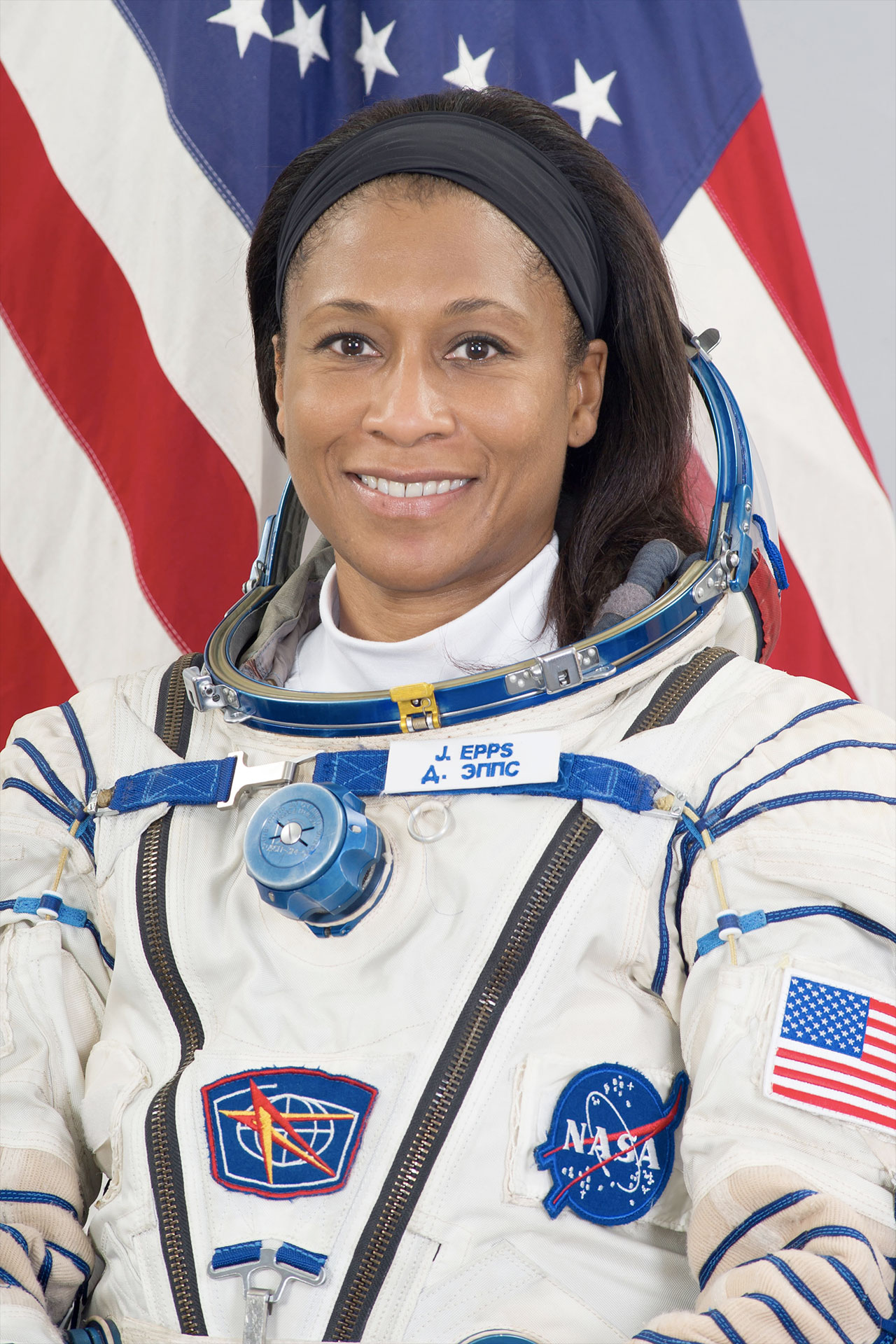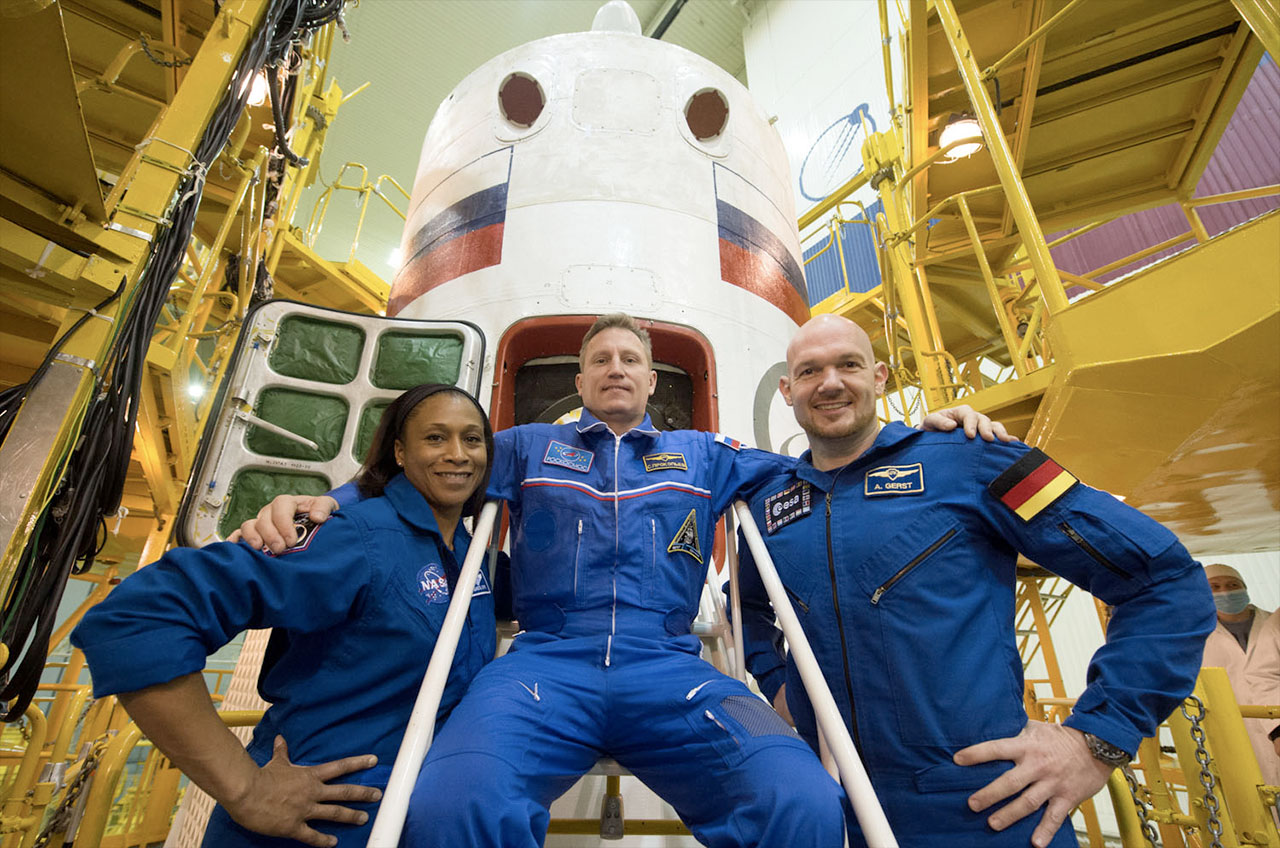Astronaut Set to be First African American on Space Station Crew Removed from Flight

HOUSTON — A NASA astronaut who was slated to become the first African American to serve as a member of the crew aboard the International Space Station has been removed from her upcoming mission.
Jeanette Epps, who had been scheduled to launch to the space station in June of this year for a five-month expedition, has been replaced on the flight by another NASA astronaut, Serena Auñón-Chancellor, who was serving as Epps' backup.
NASA announced the crew change on Thursday (Jan. 18), stating that Epps will assume duties in the Astronaut Office at Johnson Space Center in Houston, and "be considered for assignment to future missions."
The reason for Epps' removal was not given. Brandi Dean, a NASA spokesperson, said that a number of factors were considered.
"These decisions are personnel matters for which NASA doesn't provide information," Dean told collectSPACE.com.
Epps, 47, was chosen by NASA to train as an astronaut in 2009. In January 2017, the space agency announced that Epps would become the first African American station crew member, launching with two other crewmates on Russia's Soyuz MS-09 spacecraft. Once on the space station, Epps would serve as a flight engineer on both the Expedition 56 and Expedition 57 crews.
Six African-American astronauts — Robert Curbeam, Alvin Drew, Joan Higginbotham, Leland Melvin, Robert Satcher and Stephanie Wilson — previously visited the station on space shuttle missions to assemble and supply the orbiting laboratory, but Epps would have been the first to serve on the space station's resident crew.
Breaking space news, the latest updates on rocket launches, skywatching events and more!
The news of Epps' flight assignment quickly spread online, appearing on numerous websites and in news publications worldwide. Woman's Day featured Epps on the cover of its 80th birthday issue in September 2017.
"Next year, astronaut Jeanette Epps will add her name to an exclusive list of women who have traveled to space," Woman's Day reported at the time." After almost a decade of training in robotics and the Russian language — so that she can communicate with the cosmonauts on her mission — she will become the first African American woman to live and work long-term at the International Space Station."
Prior to her space station assignment, Epps served on a panel focused on improving crew efficiency on the outpost. She also worked as a support crew member for two station expeditions and as a spacecraft communicator, or capcom, in mission control.
Most recently, Epps was assigned as backup to Norishige Kanai, an astronaut with the Japan Aerospace Exploration Agency (JAXA), who lifted off to the space station on Dec. 17, where he is currently an Expedition 54 flight engineer.
"We together went through all trainings and examinations and all of the requirements. I am pretty sure your time will come pretty, pretty soon," said Kanai, addressing Epps at his pre-launch press conference.
Epps had been assigned to launch on Soyuz MS-09 with cosmonaut Sergey Prokopyev of Roscosmos and German astronaut Alexander Gerst of the European Space Agency (ESA). While on the space station, Epps would have also served with her fellow NASA astronauts Drew Feustel and Nick Hague, as well as three other Russian cosmonauts, Oleg Artemyev, Aleksei Ovchinin and Nikolai Tikhonov.
Prior to Epps being removed, Auñón-Chancellor had been assigned to the Soyuz MS-11 crew, slated to launch to the space station in November 2018. NASA astronaut Anne McClain will now fill the seat vacated by Auñón-Chancellor.
Epps earned her bachelor's in physics in 1992 at LeMoyne College in her hometown of Syracuse, New York, prior to completing both her master's in science and a doctorate in aerospace engineering from the University of Maryland in 1994 and 2000, respectively.
She then joined the Ford Motor Company, working in their scientific research lab as a technical specialist on reducing vehicle vibrations and collision countermeasures. Her work resulted in her being granted two patents.
In 2002, she joined the Central Intelligence Agency (CIA), where she worked as a technical intelligence officer before NASA chose her with its 20th astronaut class, achieving a lifelong dream.
"I did think about being an astronaut, but I never thought that they would take me," Epps said in December, replying to a young woman at a press conference who asked if she dreamed of being an astronaut as a child. "So I decided to become an engineer. Through that route I made it into the astronaut corps."
"I did a lot of studying — I went through graduate school, undergrad and graduate school — 11 years," Epps added. "I did a lot of work in school and then I worked for a motor company and then I worked for the government. I've been with NASA for about eight years or so. It is a long road.”
See the space station expedition mission patches that Jeanette Epps would have worn at collectSPACE.
Follow collectSPACE.comon Facebookand on Twitter at @collectSPACE. Copyright 2018 collectSPACE.com. All rights reserved.

Robert Pearlman is a space historian, journalist and the founder and editor of collectSPACE.com, a daily news publication and community devoted to space history with a particular focus on how and where space exploration intersects with pop culture. Pearlman is also a contributing writer for Space.com and co-author of "Space Stations: The Art, Science, and Reality of Working in Space” published by Smithsonian Books in 2018.
In 2009, he was inducted into the U.S. Space Camp Hall of Fame in Huntsville, Alabama. In 2021, he was honored by the American Astronautical Society with the Ordway Award for Sustained Excellence in Spaceflight History. In 2023, the National Space Club Florida Committee recognized Pearlman with the Kolcum News and Communications Award for excellence in telling the space story along the Space Coast and throughout the world.



